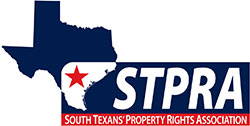Landline – August 2018
November 8, 2018Landline – November 2018
November 8, 2018Landline – October 2018
A Message from Executive Director, Susan J. Kibbe
As fall fast approaches, I’d like to catch you up on this past month’s eventful issues. As was reported in the August landline, the Agriculture Commissioner, Sid Miller, shut down the use of spray boxes for treatment in the Cattle Fever Tick Eradication Program (CFTEP). A couple of days later, he extended their use for 45 days at the urging of producer organizations as ongoing discussions continue with Texas Animal Health Commission (TAHC), USDA, and EPA on a long term solution. The extension also gives time for the redesigning of the boxes for additional ventilation, which is required by EPA labeling. If nothing else, the Ag Commissioner has brought attention to the issue of CFTEP and the importance of new methods for treatment moving forward.
Texas A&M College Station was the big winners of the CFTE research monies appropriated in the recently passed omnibus legislation, with 2.7 million given to them and A&M Kingsville for a total of eight research projects. The five projects at College Station deal with a vaccine that is purported to have a 96% efficacy rate on the R. microplus tick that is prevalent in the Rio Grande Valley. It also includes research and testing for long lasting injectables that could be effective for up to 150 days compared to the current 25-28 day treatment with Doramectin, and a long lasting topical pour on. A&M Kingsville will concentrate on research treatments for wildlife.
Research is the key. We hope that the Animal Research Service (ARS) is not left out of future funding to help with other promising CFTEP research projects.
STPRA advisor, Jim McAllen, hosted a small landowner roundtable of STPRA members for a meeting with Congressman Michael Cloud, who was appointed by the Governor to fill the remaining term of Blake Farenthold, who resigned in the spring of this year. The purpose of the meeting was to educate the Congressman on various landowner issues that affect South Texas.
We hosted another stakeholder meeting in Falfurrias last month concerning the I69 upgrade from Falfurrias to Linn-San Manuel. Affected landowners were able to voice how they will be personally affected by turnarounds/overpasses that are up to five miles apart. The TxDOT Pharr district engineer, Pete Alvarez, explained that the U.S. Department of Transportation has eliminated two lane access roads that the stakeholders feel is vital to their daily activities, barring the inability to have closer turnarounds/overpasses. We’ll be reaching out to the South Texas U.S. Representatives and U.S. Senators to advocate for an exception.
I was invited by the State Senate Veterans Affairs & Border Security Committee to give testimony on the importance of Carrizo cane and salt cedar control/eradication along the Rio Grande River at the Texas/Mexico border. STPRA has been an early proponent of its control and hopeful eradication for landowner security, border security, fever tick eradication, and water conservation. Please note the link below that offers compelling information for control of the two invasive species. (Did you know that a salt cedar tree can consume up to 400 gallons of water a day?)
Rio Grande Carrizo Cane Eradication Program
I have been working with the Texas Soil and Water Conservation Board (TSWCB) to identify landowners who are willing to have the TSWCB treat their cane and salt cedar at no cost to them for the multipurpose affect. I’ve also reached out to Border Patrol and DPS to identify high traffic smuggling areas that are key to border security efforts.
Border Patrol continues to struggle with apprehending traffic coming through the border and through the checkpoint counties. At the Kingsville Border Patrol Station/Sarita checkpoint they’re still only apprehending less than 50% of those they see. The RGV Sector needs the proper manpower, technology, and infrastructure. Controlling Carrizo cane could be a game changer, to clear line of sight for patrolling and technology and possibly replace infrastructure in some locations.
Our eminent domain subcommittee has been hard at work devising a strategy for eminent domain reform in the upcoming legislative session. Robert Howard and the subcommittee members have been meeting with legislators who had bills last session and have offered additional information that would provide further help for landowners. We will be reaching out to you soon asking for grassroots support of the legislative reform efforts.
Our annual meeting and fundraiser is shaping up nicely. We greatly appreciate our current sponsors, exhibitors, and our silent and live auction donors. There is still plenty room for more! Come join us October 11th, at the Caesar Kleberg Wildlife Center in Kingsville.
Susan J. Kibbe
Office (361) 348-3020
Susan@STPRA.org
